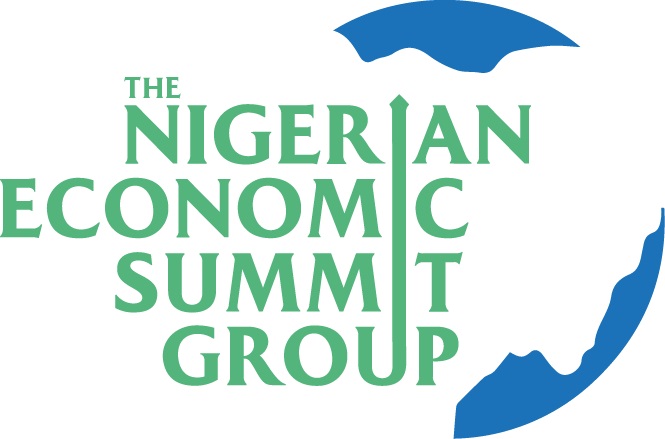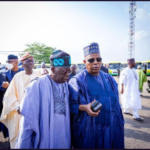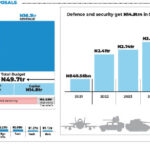Last week, the Nigerian Economic Summit (NES) meeting at Transcorp Hotel Abuja dominated the entire media space. I guess that could be for at least two reasons. First, the highly regarded Nigerian Economic Summit Group (NESG), which holds this annual ritual was clocking its 30th year and everyone was expectant of what would unfold. Second, and more important to the reader, it was a good ground for the government and the upper echelons of the private sector to examine the impact of the government’s economic policies more than a year into its tenure.
The summit was an intense three-day affair running from early morning right into the wee hours. The attendance was superlative and impressive. President Bola Ahmed Tinubu’s economic team was well represented. The president was on leave outside the country and was represented by Vice President Kashim Shettima whose schedule includes heading the economic council. The ministers of finance and that of budget and national planning were there and they actively participated.
The Permanent Secretary Budget with a host of directors from the ministry were there. The CBN Governor and his directors were part of the summit. Taiwo Oyedele, the chairman Committee on Fiscal Policy and Tax Reforms gave a presentation. From the private sector came various chief executives ranging from banks, the oil and gas sector, manufacturing, mining, etc. The World Bank Group was represented as well as the country directors of the World Food Programme, UNDP, and British Council.
There were various panel discussions on every related subject matter to the economy. One couldn’t be in every panel gathering. One could only pick and choose. Nevertheless, all the parley discussions came to be streamed at the round tables and the plenaries. From the government side, it was a series of self-congratulatory messages. The vice president set the tone by harping on the courage of the government to do what could not be done by past administrations, that is, taking on the true pricing of the petrol we consume and the naira we spend.
- Mixed feelings over directive to foreign airlines to patronise local caterers
- Ex-general Prabowo takes office as Indonesia’s president
He was willing to confess that the reforms had come with hyper-inflationary costs but quickly added that they were on top of the situation doing all they could to alleviate the pains suffered particularly by ordinary Nigerians. The message of the ministers all followed in the same vein. The government viewpoint had the strongest backing from the message of the senior vice president of the World Bank Group, Indermit Gill, when he urged Nigerian elite to unite in supporting the government’s reforms as that was the surest way to foster a prosperous and stable future for generations to come.
He also confessed that “Today’s fiscal monitoring and exchange reforms are hurting everyone, especially ordinary Nigerians who are struggling with high prices of food and transport…. It might take a decade to reap the dividends. But if you stay the course, you will surely reap the dividends.” Then he added: “Nigeria will need to stay the course for at least another 10 or 15 years to transform this economy. And it will become an engine of growth in sub-Saharan Africa”. I recall that there was a unison deep sigh all around the hall when he uttered those words. For effect, he repeated the same words. Those words would go viral in the media and become one of the most talked about quotes for the rest of the summit.
Indermit Gills’ stance is understandable knowing that we had similar reforms between 2003 to 2007 during the second term of President Olusegun Obasanjo that were hailed by the International Finance Houses. We even got a substantial debt reprieve from our lenders which became an opportunity for the country to start on a firmer footing. Unfortunately, the reforms were not sustained by the successors of President Obasanjo. We went back to the old days of allowing the subsidies to go on unabated and raking up more debts to cover government expenditures. But there is always a crunch time to pay for this profligacy.
It is a pity that this poisoned chalice had to fall into the laps of this government. One notes their courage in taking the gauntlet which, however, has sent both fuel prices going up, the naira plummeting to an all-time low and concomitantly inflation rising to an all-time high. Justifiably the citizenry is livid with anger. The caution to the government to avoid disenchantment would be that they need to be more creative in finding measures to cushion the effects of the debilitating effects of the reforms.
The NESG has lived up to the vision of its founding fathers, to be “in the forefront of addressing critical national economic challenges, fostering public-private partnerships, and crystallising structural reforms”. The presentations at panels were well-researched and the discussions that followed were robust signifying the high level of the attendees. The summit was well-attended and crowded. When I tried to get into a venue where the minister of finance was involved, I found it so jammed-packed, with all the seats taken that I had to go elsewhere.
One only hopes that the government will be alive to the suggestions and recommendations of the summit to continue to fine-tune the reforms for the good of Nigerians.

 Join Daily Trust WhatsApp Community For Quick Access To News and Happenings Around You.
Join Daily Trust WhatsApp Community For Quick Access To News and Happenings Around You.


